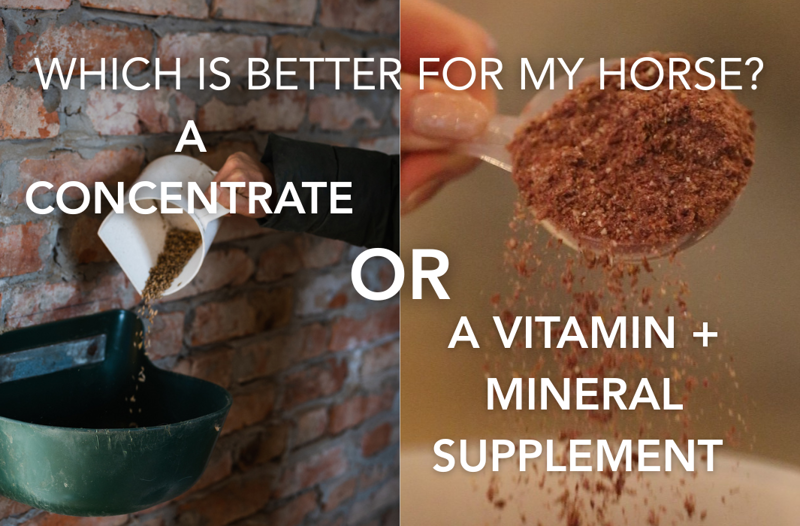Learn how to body condition score your horse using the 0–5 system and why proactive weight management is essential for preventing laminitis, supporting metabolic health and promoting long-term soundness.
Filters
Blog Options
Blog archive
- 2026
- 2025
- 2024
- 2023
- 2022
- 2021
- 2020
- 2019
- 2018
- 2017
- 2016
- 2015
Close
45 YEARS AT THE CENTRE OF EQUINE NUTRITION™

- Bespoke All-in-One™
-
Products
- Back
- Horse Joint Supplements
- Horse Digestion Supplements
- Horse Muscle Supplements
- Horse Vitamins & Minerals
- Horse Calming Supplements
-
Horse Respiratory Supplements
- Back
- Clarity®
- Horse Hoof Supplements
- Horse Skin & Coat Supplements
- Horse Health Supplements
- Supplements for Older Horses
- Horse Breeding Supplements
-
Horse Hormone Supplements
- Back
- Hormonease™
- Horse Treats
-
Herbs for Horses
- Back
- Boswellia
- Burdock Root
- Celery Seed
- Chamomile
- Chastetree Berry
- Cider Apple Vinegar
- Cinnamon
- Clivers
- Comfrey
- Dandelion Roots & Leaves
- Devil's Claw
- Echinacea
- Fenugreek Seeds
- Fussy Feeder
- Garlic Powder
- Hawthorn
- Hedge Herbs
- Liquorice
- Marigold Flowers
- Marshmallow Root
- Meadowsweet
- Milk Thistle Seeds
- Mint
- Nettle
- Rosehips
- Seaweed
- Slippery Elm
- Spirulina
- Turmeric
- Yucca
- Canine
- Gift Cards / Rewards
- ABOUT US
- Contact Us
- Knowledge base
Menu
-
Products
- Back
- Horse Joint Supplements
- Horse Digestion Supplements
- Horse Muscle Supplements
- Horse Vitamins & Minerals
- Horse Calming Supplements
-
Horse Respiratory Supplements
- Back
- Clarity®
- Horse Hoof Supplements
- Horse Skin & Coat Supplements
- Horse Health Supplements
- Supplements for Older Horses
- Horse Breeding Supplements
-
Horse Hormone Supplements
- Back
- Hormonease™
- Horse Treats
-
Herbs for Horses
- Back
- Boswellia
- Burdock Root
- Celery Seed
- Chamomile
- Chastetree Berry
- Cider Apple Vinegar
- Cinnamon
- Clivers
- Comfrey
- Dandelion Roots & Leaves
- Devil's Claw
- Echinacea
- Fenugreek Seeds
- Fussy Feeder
- Garlic Powder
- Hawthorn
- Hedge Herbs
- Liquorice
- Marigold Flowers
- Marshmallow Root
- Meadowsweet
- Milk Thistle Seeds
- Mint
- Nettle
- Rosehips
- Seaweed
- Slippery Elm
- Spirulina
- Turmeric
- Yucca
- Canine
- Gift Cards / Rewards
- ABOUT US
- Contact Us
- Knowledge base
Dr. Stephanie Hyland BSc (Hons)
 Call Stephanie Hyland MSc RNutr. or
Call Stephanie Hyland MSc RNutr. or
Sophie Pelham Burn MMedSci ANutr.
on 0800 585525 for
free qualified equine nutrition advice
 Call Stephanie Hyland MSc RNutr. or
Call Stephanie Hyland MSc RNutr. or
Sophie Pelham Burn MMedSci ANutr.
on 0800 585525 for
free qualified equine nutrition advice
Blog
If you are looking to add some enrichment to your horse's routine or diet, whilst also encouraging microbial diversity, try planting some of these herbs and plants in and around your yard and stables.
The circulatory system is extremely complex and works alongside most of the other systems in the horse’s body. Our Nutritionist breaks the circulatory system down into its main components and explains what you can do to support your horse’s cardiovascular health…
Salt isn’t just for hot weather; horses require sodium and chloride every day to support hydration, digestion, nerve function, and performance. This article explains why deficiencies are common, outlines daily requirements based on body weight, and provides practical guidance on supplementing with salt or electrolytes year-round.
Free Faecal Water Syndrome can be triggered by subtle changes in forage, fibre, and management. Discover how diet, stress, and gut health interact — and what you can do to help.
Soya for horses explained: why it’s used in horse feed, different forms of soy, and the facts behind concerns about hormones, behaviour, and inflammation.
As horses live longer, deciding when to introduce a veteran feed is less about age and more about individual needs. Changes in teeth, weight, digestion, and muscle can happen at very different stages, meaning some horses benefit from veteran-style nutrition earlier, while others never need it at all. This article looks at the key signs to watch for and how to choose the right feed based on what your horse can chew, digest, and utilise - rather than the number on their passport.
This time of year has seen a large increase in colics due to drastic changes in the weather. If your horse is suffering from winter colic or you want some ideas on how to prevent them from dehydrating or getting a chill this winter, have a read...
Taking time at the beginning of the year to evaluate your horse's nutrition is a great way to start the year off right. The link between training and nutrition is the first building block of progress. This week, we explore and explain the connection and why it's important for your horse.
Are you in need of some exercise inspiration or ideas this winter? Keeping your horses strong and their brains engaged can be hard during wet and dark winters like this one. Here are some ideas on everything from groundwork to stretches and massage techniques...
To celebrate this holiday season, we thought we would give you some ideas on how to share the festive cheer with your horses.
If you change your horses' feeding routine in winter, do you start feeding concentrates or do you increase their fibre with a vitamin and mineral balancer? We break down how to feed your horses in winter - the simple way.
Copyright © 2026 Feedmark Ltd. All rights reserved.
Feedmark, Harleston, IP20 0NY
_800.png)
_800.png)
_800.png)
_800.png)
_800.png)
_800.png)
_800.png)
_800.png)
_800.png)
_800.png)
_800.png)
